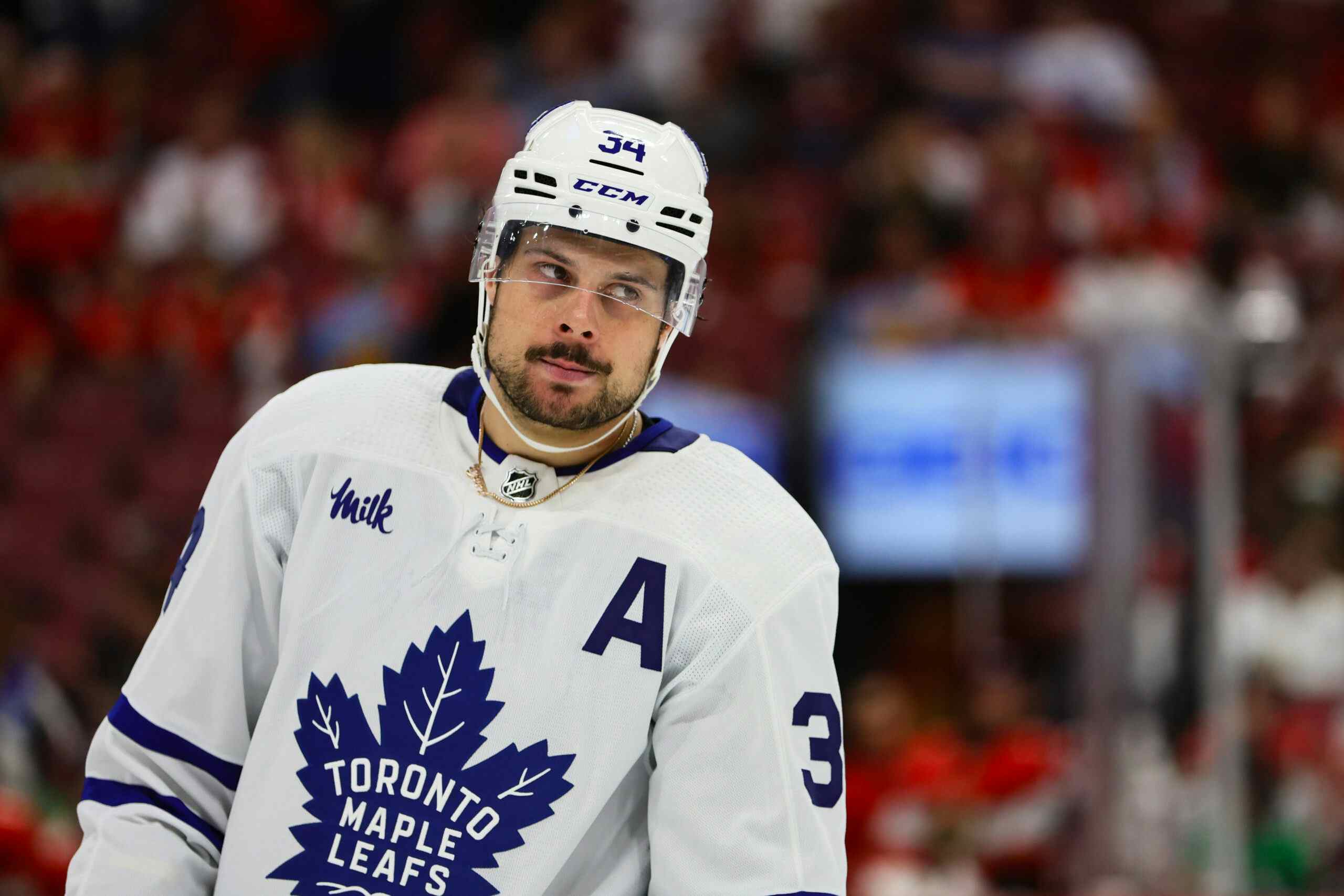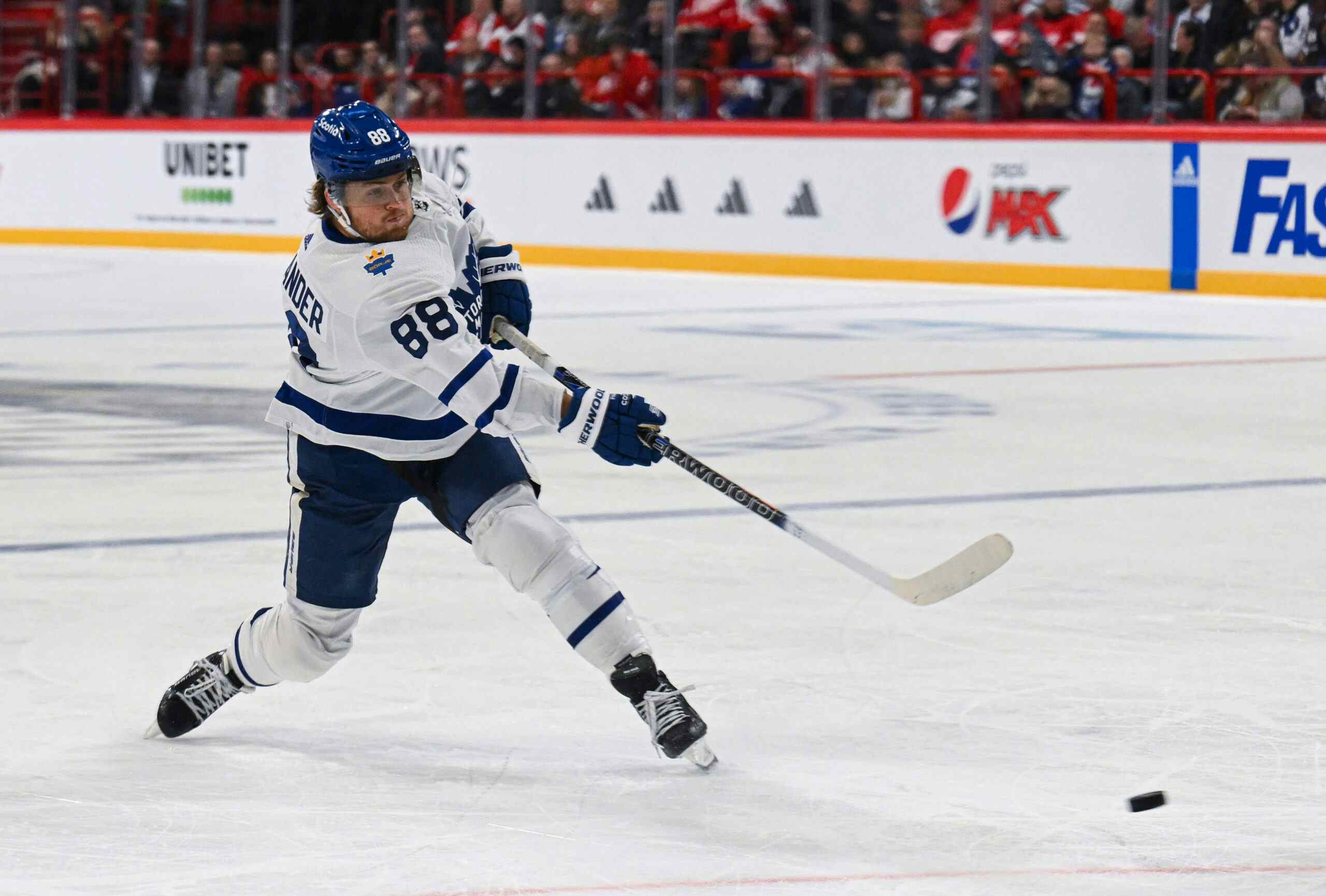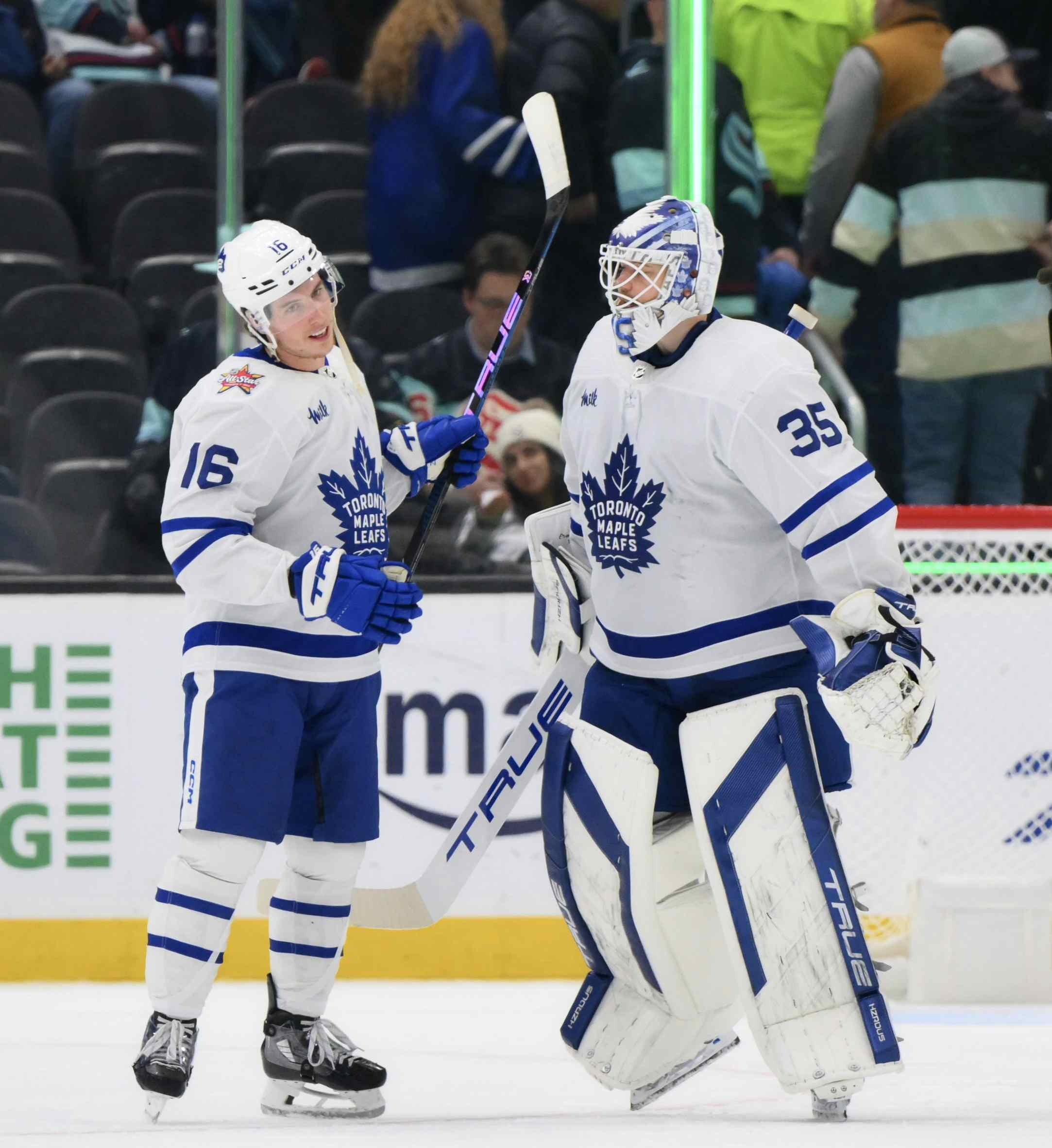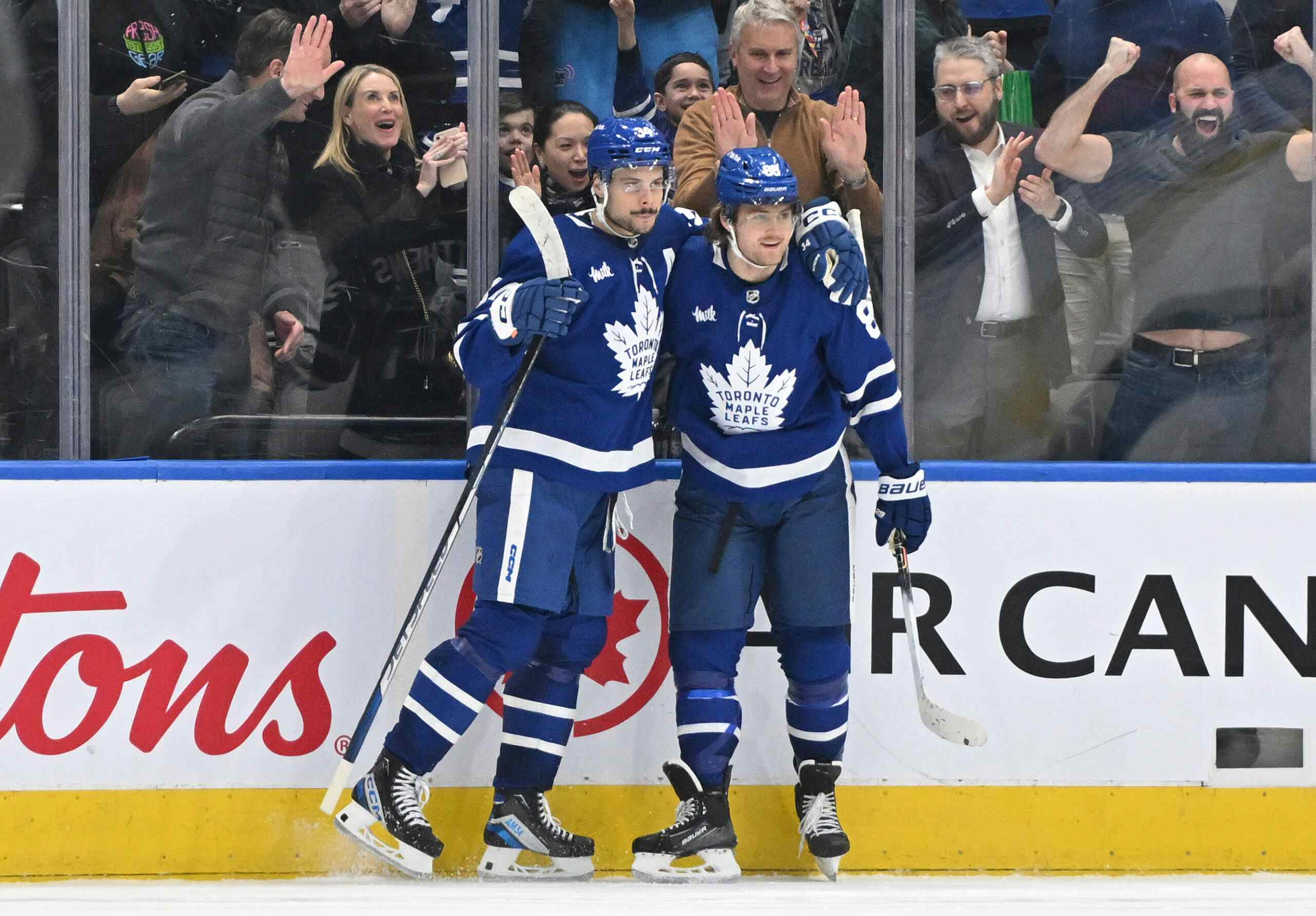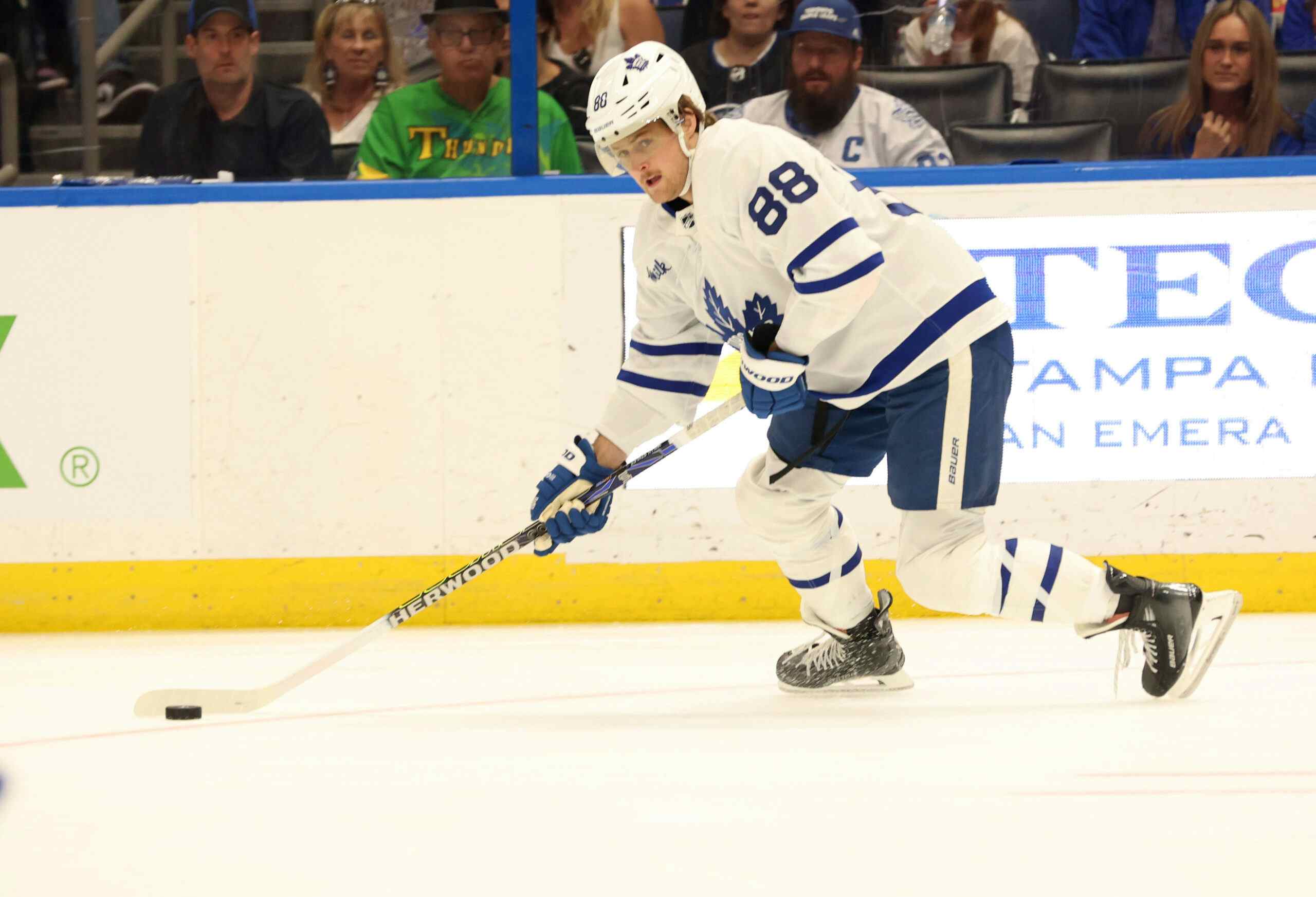Know a Writer: Jesse Spector
By Steve Dangle
10 years ago
Since the first interview in the Know a Writer series was so well-recieved, how could I not do more?
Our next featured sports writer has recently made a transition to baseball, but has been one of my favourite hockey writers for a while now. As a weirdo with a YouTube channel, I am drawn to people who think outside of the traditional box. Jesse Spector is one of those fresh thinkers.
Now you can get to know him.
Name: Jesse Spector
Title/Company: National baseball writer, Sporting News
Shoots: Poorly
Title/Company: National baseball writer, Sporting News
Shoots: Poorly
What was your first ever job in sports media?
My first sports media experience was in high school, doing play-by-play of Long Island University’s basketball games for the Brooklyn Campus’ student television station. My grandfather was a professor in the English department there and knew I was interested in becoming a sports media member and helped get me in touch with the right people to get a little experience. My first professional job, after college, was 10 weeks at the Associated Press as summer relief as part of what was called MegaSports — it was writing previews of baseball games and other summer sports.
You just landed a brand new gig. Before you get into details on it, what did you do prior to that?
I spent two seasons as the national hockey writer at Sporting News. I absolutely loved it. How could I not? I got to go to 63 Stanley Cup playoff games and get paid to write about what I saw — that alone would be enough to make me happy, even if the job the rest of the year wasn’t as great as it was.
You just announced that you’ve accepted the position of National Baseball Writer for The Sporting News. What brought about the switch from baseball to hockey?
Quite simply, I was asked to do it. The extent to which I’ve loved writing hockey made it a harder decision than it otherwise might have been, but for the professional track I’d like to take, this is another step on the way to my dream job — not that my old job and new job aren’t dream jobs in their own right.
Does this mean you’re totally done with hockey for now? If yes, what do you think you will miss most about covering hockey?
I think that depends what you mean by "totally done." I’m never going to be totally done with hockey. Even if I never write another hockey article, I’ll always be a fan, and I’ve made so many friends who are writers, bloggers, and fans that I’m locked in forever. I’d also think that during the baseball offseason, I might get a chance to do a little hockey coverage. I’m still living in New York, and there’s an intereting matchup with a certain team from western Canada and a certain team in Manhattan in November that I have a feeling I might end up at.
You, along with anybody who covers or watches the NHL, suffered through the agony of the lockout this past season. Your twitter feed was one that stuck out to me as one that was just as miserable with the situation, if not more so, than I was. What was your experience like throughout those months?
I got into sportswriting to write about sports. The lockout was about business, and I really didn’t feel it was necessary — it was more a battle of wills than anything else. The final deal was what pretty much any rational person could have foreseen. The owners always wanted 50-50, and they had the hammer, so they were gonna get it. All of the posturing was ridiculous, and staking out office buildings is not my idea of a good time. Also, I’m a hockey fan and I wanted to see hockey, so yeah, I was just as miserable as anyone else. If that came across, then I guess I did a good job, because I think that my role is to get the news across with analysis that takes the story forward, while applying my own voice.

I have to assume that being part of the famous #DregerFace picture during the lockout was a landmark in your career. What was it like in that magical moment, and the Twitter hilarity that ensued?
Well, we had just come in out of the cold, so I still had my Expos toque on, and Pierre LeBrun took out his phone to take a picture of the scene. I noticed — I’m not sure that Darren Dreger did, you’d have to ask him — and decided to make a ridiculous face because we were in a ridiculous situation. Okay, not because we were in a ridiculous situation, but because I’m a ridiculous person. I was surprised that #DregerFace took off as much as it did, but that speaks to the power of Twitter, and just how desperate every hockey fan was at that time for even a shred of entertainment. Was that really a landmark in my career? Thankfully, I hope to have a lot more of my career in front of me.
You were the only memeber of the PHWA (Professional Hockey Writers Association) to give James Reimer a Hart Trophy vote. What do you make of his 2013 season, and the acquisition of Jonathan Bernier?
I gave Reimer a Hart vote because I thought the Leafs would not have made the playoffs without him, and with the way I was viewing the voting criteria, he fit the bill. I don’t understand how the Toronto front office could look at the roster and decide, "You know what? Goaltending is the position we need to upgrade." I think Bernier has a chance to become an elite goaltender in the NHL, but so does Reimer. That’s the biggest problem I have with Toronto making that trade. You take the one position where you might have long-term stability, and create a mess out of it. Why? Bernier is a better addition for the Leafs than Kiprusoff would have been, but that’s like saying the Clarkson deal is ok because the cap hit isn’t exorbitant. That’s not the point. Clarkson’s deal is too long for a 29-year-old power forward and adding Bernier when you already have Reimer – not just adding Bernier, but giving up assets and cap space to do it – well, they’ll have a really good backup goalie now, whoever it winds up being.
What advice do you have for aspiring sports writers and sportscasters?
I hate to say this, but a lot about success (at least as much as I can say I’ve had it) depends on connections, at least to get your foot in the door. It doesn’t have to be nepotism or anything like that, and you don’t have to be an aggressive networker, but I think you can put together what I mean from how my career path has worked out.
I went to Penn, and between my junior and senior years, I got an internship at the Brooklyn Eagle, the little newspaper whose office was four blocks from my home. I started writing news stories, but I wanted to do sports, and it was the first season for the Brooklyn Cyclones minor-league baseball team and I pushed the sports editor to let me get a crack at covering the team. I worked every home game, plus a few Staten Island Yankees games. It was a really cool job, and along the way, I met Adam Rubin in the press box. Adam was a Penn grad and after I got out of college, he had become the Mets writer at the Daily News. I was working a part-time job at SportsTicker, and pretty miserable there, so I called Adam and asked if he knew of any openings at the News. He didn’t, but suggested I call the high school editor and see if there was a way I could help on a part time basis. I did, and they had me in to take high school basketball scores over the phone. Then I kept showing up, and showing up, and showing up, and they gave me more and more stuff to do. It took about a year to get offered a full-time spot, as a copy editor, which I took, thinking that maybe I would do that for a couple of years and get a crack at writing.
It didn’t quite work out that way. I was on the copy desk for seven years, but I took every opportunity I could to write, including starting a baseball blog on the NYDN website called Touching Base, which accompanied a feature in the Sunday paper during baseball season. It was about all the non-New York teams, with a particular emphasis on the increasingly popular world of advanced stats, mixed with general weird stuff around baseball. A lot of what I did on Touching Base is going to influence my new job.
Anyway, I wrote as much as I could and kept asking to do more, and finally, when the Rangers beat opened up, they offered it to me and I took it. I had always been a hockey fan, but hadn’t thought about writing it, and I’m glad it worked so well that Sporting News saw fit to make me their national hockey writer. Fast forward to now, and I’m embarking on a renewed journey in baseball.
If there’s a lesson in that, I think it’s to take advantage of the relationships you make, but to know that doing so will only help you get opportunities — from there, it’s hard work, seeing what openings might be available, and a whole lot of persistence and patience. I enjoyed writing headlines for a tabloid, but it was a long seven years waiting to get that shot to write full time. There were more than a few times that I thought about giving up on the business. Now, I’m glad I didn’t.
Where should I point people for your stuff?
I’m on Twitter at @jessespector… for those who might not be fans of someone who tweets constantly and does not stick to just tweeting the coverage area — you know who you are, if you’ve ever told anyone "stick to sports" — all of my SN stories post here: http://www.sportingnews.com/author/jesse-spector
Recent articles from Steve Dangle

